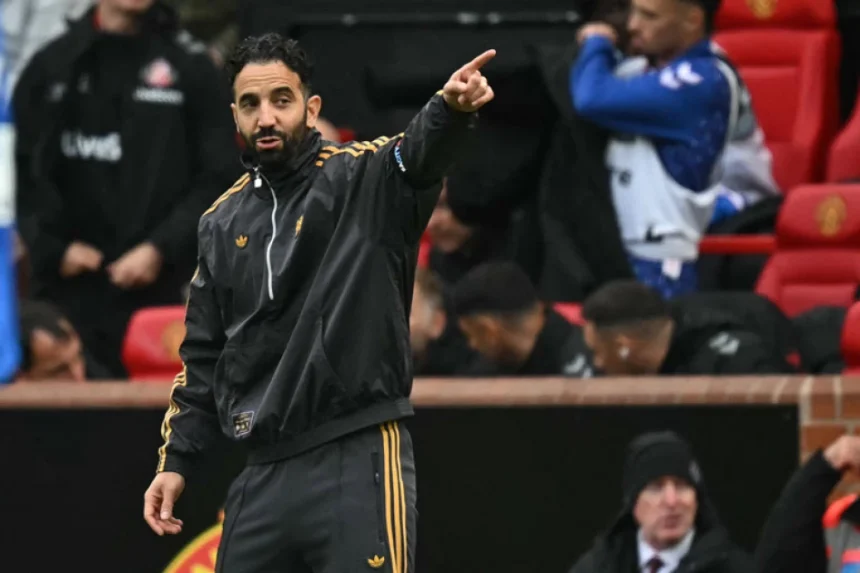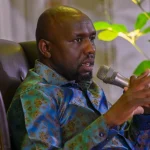In what appeared to be a routine comment on transfer speculation, Sporting CP’s Ruben Amorim has delivered a nuanced masterclass in modern football management. His public warning to young goalkeeper Nordin Lammens about “massive” Manchester United scrutiny wasn’t just casual advice—it was a calculated strategic move with multiple layers of intention.
Beyond the Headlines: Decoding Amorim’s Comments
When Amorim stated that Lammens “has to be ready for that, mentally and professionally,” he was operating on several levels simultaneously:
1. The Psychological Shield
By addressing the United links directly, Amorim normalizes the pressure for his young goalkeeper. “He’s taking the anxiety of the unknown and turning it into a tangible challenge,” noted sports psychologist Dr. Maria Silva. “This reframing helps players view pressure as part of the job rather than something to fear.”
2. The Value Inflation Strategy
Amorim understands the transfer market dynamics better than most. His public acknowledgment serves as an unofficial price tag, telling potential suitors: “We know what we have, and we understand his worth in the current market.”
3. The Professional Standard
The comments set a clear benchmark for Lammens’ development. As former Sporting goalkeeper and club legend Paulo Bento observed, “Ruben isn’t just talking about handling media pressure. He’s talking about the day-to-day professionalism required at the highest level—something that can’t be switched on overnight.”
The Modern Goalkeeping Conundrum
Lammens represents the new archetype of elite goalkeeping that clubs like Manchester United are desperately seeking:
-
Technical Proficiency: At 6’5″, his frame is ideal for aerial dominance, but it’s his footwork that makes him particularly valuable in today’s game
-
Tactical Intelligence: Sporting’s system demands goalkeepers who can initiate attacks and read the game as an outfield player
-
Mental Resilience: The ability to remain focused despite limited involvement—a crucial skill for any goalkeeper at a top club
The United Goalkeeping Context
Amorim’s timing is particularly insightful given United’s current situation:
-
André Onana’s mixed debut season creates ongoing uncertainty
-
The aging Tom Heaton provides experienced cover but isn’t a long-term solution
-
Academy prospects remain unproven at the highest level
As one Premier League scout anonymously noted, “United need a goalkeeper who can challenge immediately but also develop into a world-class talent. Lammens fits that profile perfectly.”
The Bigger Picture: Sporting’s Business Model
This isn’t Amorim acting alone—it’s part of Sporting’s sophisticated player development and transfer strategy:
-
Identify raw talent with high potential
-
Develop within their system under Amorim’s guidance
-
Increase market value through performance and strategic messaging
-
Sell at premium prices to fund further development
The success of this model is evident in the transfers of Bruno Fernandes, Matheus Nunes, and Pedro Porro.
What This Means for Lammens’ Development
The immediate impact of Amorim’s comments creates both opportunity and challenge:
Opportunities:
-
Accelerated development path with clear targets
-
Increased motivation to prove himself worthy of the hype
-
Valuable experience handling professional pressure early in his career
Challenges:
-
Every mistake will be magnified and analyzed
-
Increased expectations from fans and media
-
Potential distraction from his actual development work
Conclusion: More Than Just Transfer Talk
Amorim’s handling of the Lammens situation demonstrates why he’s considered one of Europe’s most promising managers. He’s not merely preparing a player for potential transfer; he’s actively shaping that player’s development, managing his club’s assets, and positioning Sporting CP favorably in the global market.
As the summer transfer window approaches, this public statement will be remembered as either a prescient warning or the opening gambit in a major transfer saga. Either way, Amorim has once again proven that in modern football, what happens at the press conference podium can be just as strategic as what happens on the training ground.










